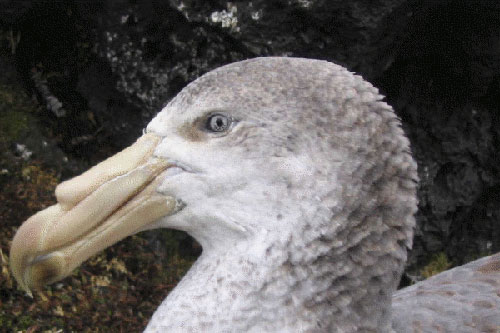Rachael Alderman (Department of Primary Industries, Parks, Water and Environment, Hobart, Tasmania, Australia) and colleagues have published in the journal Ecological Modelling showing that Macquarie Island’s Northern Giant Petrels Macronectes halli (globally Least Concern, but considered nationally Vulnerable in Australia) should recover to their pre‐poisoning level by 2017 after being knocked back by the Macquarie Island Pest Eradication Project (MIPEP).
The paper’s abstract follows:
“Pest eradication conducted over the years 2010 to 2014 at Macquarie Island successfully eradicated introduced rabbits, rats and mice from this sub-Antarctic island. The initial aerial baiting phase in the winters of 2010 and 2011 resulted in significant mortality of several native seabird species through primary and secondary ingestion of brodifacoum bait. A species of key concern is the northern giant petrel (Macronectes halli), which, although relatively abundant and increasing on Macquarie Island, is listed as threatened under Australian legislation and was one of the species most affected by poisoning. We use a Bayesian approach to estimate the total mortality and the response of the population to the poisoning event over the short- to medium-term. We then considered how population abundance might respond over the ensuing years. Projections of population trajectories suggest a greater than 50% probability of recovery to the pre‐poisoning levels of 2009 breeding pairs by 2017. This modelling approach could be applied to future planned eradications to quantify the mortality and recovery of incidentally affected populations.”

Northern Giant Petrel, photograph by Marienne de Villiers
Reference:
Alderman, R., Tuck, G.N., Castillo-Jordán, C., Haddon, M., Punt, A.E. 2019. Macquarie Island’s northern giant petrels and the impacts of pest eradication on population abundance. Ecological Modelling 393: 66-75.
John Cooper, ACAP Information Officer, 16 April 2019

 English
English  Français
Français  Español
Español